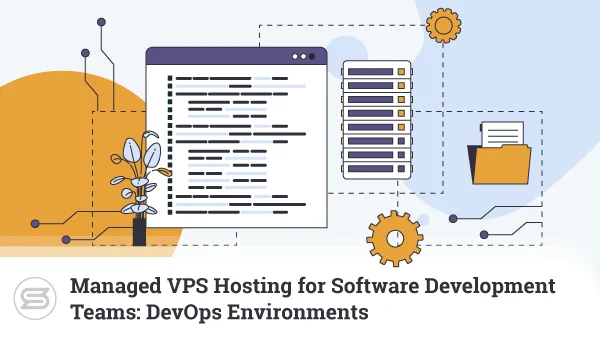Having a website today is a no-brainer, many people even host numerous projects with different purposes. As a business, having an online presence can be the difference between growing to the next-level or struggling to keep afloat. So what is the best choice when we need to host multiple websites easily?
If you’re a web designer or developer, you’re well aware that some point you’ll eventually need to find hosting for many clients. Technically there are a few ways this can be done and we will go over them one by one.
When Hosting for Multiple Websites May Be Needed
For those who have yet to create their first website, the thought of running multiple sites may seem a little out of their ballpark. After all, isn’t one site usually enough? In many this might be true. Yet creating and running more than one website is becoming increasingly common today.
The most common reason for that would be the separation of personal and business needs. For example, you may keep a personal blog, while at the same time maintaining a portfolio site for professional reasons.
Another scenario would be if you were a web designer or web developer. Although providing hosting for websites may seem a bit out of the job description, it is actually pretty common. There are many clients who prefer package deals. This is where the designer or developer builds, deploys, and provides maintenance for their site.
Larger educational institutions with different faculties may decide to have multiple websites as well. This can especially be true if each faculty needs to support an independent student portal or a separate LMS.
Some bigger enterprises may also have separate websites for different business purposes. This can include a corporate site, microsites for special brands, retail sites, and more.
Finally there is also the web hosting reseller side of things. Resellers buy special accounts from web hosts and divide the resources to individual customers. Technically, this means the reseller is hosting multiple sites as well since they are all under the same main account.
Using Shared Hosting for Multiple Websites
In many cases it can be tempting to try and use shared hosting to host multiple sites. Web hosting companies often advertise a range of shared hosting plans at very lucrative prices. The higher tier among these are often labeled as being able to host more than a single site.
Technically, this is true. Shared hosting is also often the cheapest solution available and there are plans that allow multisite hosting.So much for the good news, though.
Shared hosting is often the least desirable option when it comes to multisite handling because of its architecture and all the performance and security setbacks it brings.
As the name implies, shared hosting clients share the resources of a single server. And that can often mean more than a hundred people all fighting for the same CPU, RAM, and bandwidth.
Even worse is the fact that shared hosting accounts do not offer guaranteed on-demand resources. Although you may have access to a certain amount of processing power, it might not be available when you most need it. Another account on the server may end up hogging all the resources, causing all websites on the server to lag.
Finally, there is another key aspect – security. Even if you secure your own account and website, a hacker can still breach into the server through a poorly-secured neighbor. There is just no way to guarantee that 100+ people will all be responsible enough to eliminate all hacker threats.
VPS Hosting for Multiple Websites
Compared to shared hosting, VPS plans are much more efficient when handling multisite workloads. This type of hosting addresses many of the shortcomings of shared hosting.
VPS hosting plans come with guaranteed set of system resources – CPU, RAM, disk space, bandwidth. As performance is of the essence, there are very few clients on a single server, all isolated from each other.How does that happen? Virtualization technology.
Hosting providers utilize that process to divide a physical server into several virtual instances, all acting as their standalone server machines.
VPS accounts come with a dashboard that lets you create multiple accounts on your virtual copy – one for each of your websites. This gives you a very high degree of control over your resource allocation and allows for fine-tuning depending on the purpose at hand.
If you go for a reseller VPS hosting plan, many hosts often include a number of other helpful add-ons. For example, ScalaHosting’s Managed VPS reseller plan offers white label control panels so you can build your own hosting brand and hide all ties with your provider.
Another point in favor of using VPS to host multiple websites is the scalability of such accounts. This means you can adjust not just the amount of resources you need, but add and remove them on-the-go.
Dedicated Servers for Multiple Websites
In the context of web hosting, dedicated servers are often used for very specific scenarios. Under typical circumstances, they are quite costly as you are paying for the exclusive use of an entire machine.
This can be fantastic if you need a huge amount of computing power on demand. Imagine running just a few websites on a single server – they will likely be able to handle almost any workload from a large number of visitors.
On top of that, dedicated server hosting also often comes with a number of other benefits such as top-of-the-line security and extreme customizability.
The big problem here is the cost. When choosing a dedicated server, you’ll need to decide in advance how much resources you need. Based on that, you need to find either a bare-metal server or a managed service where the hosting provider will help you with some initial setups. All that is rarely budget-friendly, and prices for such a service often exceed $100/month.
Which Option to Choose for Hosting Multiple Websites
Having walked through the pros and cons of each hosting type for multiple websites, you might have noticed there isn’t a single solution that works in all cases.
Shared hosting would be a good choice if you’re thinking of hosting multiple small or personal sites. In these cases, it isn’t likely your websites will be critical and can afford a bit of downtime if anything unexpected happens. You’ll also benefit from the lower cost of the shared service.
VPS hosting is the most suitable choice for almost all situations that require hosting multiple sites. It’s efficient and very cost effective since resources can be scaled up quickly as your websites grow.
ScalaHosting has long years of experience hosting multiple sites on a VPS plan. Our managed cloud VPS plans have been tailored with industry-leading hardware and unique features, like the proprietary SPanel control panel. This solution gives you virtually unlimited expandability at no added cost as compared to the cPanel-based VPS hosting which has involves additional control panel licensing fees.
Dedicated servers work very efficiently with multiple sites, even high-traffic ones. However, unless the sites you’re running can justify the cost of this service, dedicated hosting is usually unnecessarily expensive.
Do the CMS and Technologies Behind the Websites Matter
Websites today can be built in many different ways.In the past, most websites were simply constructed compilations of static pages. This means that all visitors were essentially served the same content.Looking behind the scenes, this type of website is the easiest to service for web hosting platforms. All the server needs to do is wait for a request and deliver the page to the user’s browser. There are minimal processing operations involved so much less resources are required to deliver static content.
Nowadays, there are a ton of different ways and technologies to help you build a website. Complex actions can be accomplished even by novice users by simply making use of content management systems like WordPress, Joomla, Magento, or Drupal.
The problem with web applications is they often rely on dynamic content. For example, a CMS like WordPress requires a database from which it retrieves information. Additionally, there are tons of plugins that create and manage dynamic elements all over your WP site.All this requires processing power and enough RAM to keep the server from running slow or going down entirely.
How Many Websites Can be Hosted and Why
If you decide to use shared hosting for hosting multiple sites, the number of projects you can handle often depends on the host. The cheapest shared hosting plans normally allow single sites only, while mid and high-end packages support between three to unlimited.
For VPS plans, there is no real limitation on the number of websites you can host per account. However, keep in mind that because resources are fixed, you will have to work within those constraints for each site to have enough server power.Dedicated servers can also host as many websites as you wish.
Rather than focusing on the ‘how many sites’ question – decide if the number of projects you want to host can be supported by the amount of resources you have on hand with the chosen hosting plan.
Conclusion
VPS plans today come in all price ranges. Some come close to the dedicated server costs, while other, like the ScalaHosting Managed Cloud VPS, cost a fraction more than premium shared hosting plans. A small price to pay for optimal performance for multiple websites.
Even if you plan on hosting just a couple of websites, VPS often makes more sense. It’s not just because of the cost involved, but the excellent performance and security that come with these types of offers.
Frequently Asked Questions
Q: How do I set up multiple websites on one host?
A: Most web hosting accounts come with a control panel that help you manage multiple websites. You need to move each website’s files into their own folder and point the appropriate domain name to that folder from within your hosting control panel.
Q: Can I host multiple domain names with my hosting account?
A: This can work in two different ways. You can either access a single site with more than one domain name, or multiple websites with their own domain. The number of websites your hosting account can handle will depend on your plan.
Q: Do I need separate hosting for each domain?
A: No. Most web hosting accounts can support multiple websites on a single plan. The exception is typically the lowest tier of shared hosting which generally only allows users to host a single site.
Q: Can I host multiple sites with shared hosting?
A: In most cases you will be able to host more than one site on shared hosting. This isn’t usually recommended since it will have an impact on your site performance. Shared hosting isn’t very powerful and you may struggle to manage more than a single site.
What is a VPS – Everything you need to know!



